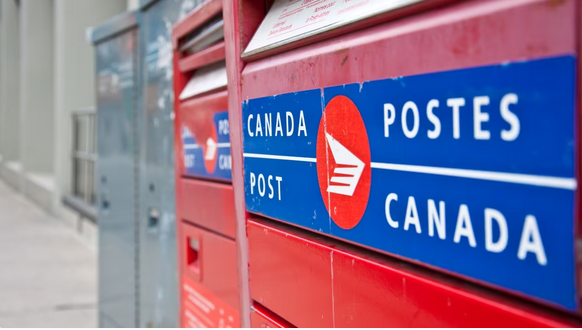Canada’s big banks not transparent enough about Black entrepreneurship loan programs
Most of Canada’s major banks continue to lack transparency regarding their loan programs aimed at supporting and removing barriers for Black entrepreneurs, The Globe and Mail has found.
The killing of George Floyd in 2020 sparked conversations between the banks, the federal government and Black business organizations about increasing funding for Black entrepreneurs who disproportionately face systemic barriers to accessing capital. Banks ended up leaving the government initiative in 2021 with promises to create their own tailored programs.
In the three years since, five of the six biggest banks have created programs that they say would help increase the amount of credit that Black entrepreneurs have been able to access. However, while The Globe has repeatedly checked in with the banks to track the progress and impact of these programs, the institutions have generally declined to provide data on how many loans have been extended or how many Black entrepreneurs they have helped.
In October, The Globe reached out again. Only Canadian Imperial Bank of Commerce and Royal Bank of Canada shared data about the amount of loan money they have distributed and the number of approved applicants. Other institutions, including Bank of Nova Scotia, Toronto-Dominion Bank, Bank of Montreal and National Bank provided limited or no information.
Jackee Kasandy, chief executive officer and founder of the Black Entrepreneurs and Businesses of Canada Society, said funding remains a challenge.
“Three to four years in, despite some progress, the banking and other funding systems still move slowly when it comes to real, equitable funding opportunities for Black business owners,” she said.
CIBC said it has approved more than $14-million in loans to Black entrepreneurs, exceeding its goal of $13-million since the launch of its program in 2022. Its Black Entrepreneurship Program provides loans up to $250,000 for equipment, leasehold improvements and working capitals.
In addition to the loans, the bank said it has provided $2-million in non-repayable loans through the Black Opportunity Fund to support entrepreneurs who were declined a loan under its program. The BOF is a charitable organization that funds Black businesses.
RBC said it has committed over $44.5-million in funding as part of its broader five-year, $100-million commitment to support Black Canadian entrepreneurs. The bank launched its Black Entrepreneur Program in 2021. Some of the funding is allocated to the Black Entrepreneur Startup Program delivered through Futurpreneur, a non-profit organization that provides young entrepreneurs with loan financing.
The bank has made some changes to the BESP program since its launch in 2021. Young Black entrepreneurs from the ages of 18 to 39 who qualify can now access loans of up to $75,000 in collateral-free financing, an increase from the previous limit of $60,000. Mentorship, guidance and networking opportunities for startup ventures are also included.
In October, 2021, the bank launched the RBC Black Entrepreneur Business Loan, another program that provides eligible Black entrepreneurs in Canada with business loans of up to $250,000. Loan rates for the program are now reduced to two percentage points above the current prime interest rate, making the loan more affordable than a fixed-rate one.
Scotiabank, which launched its Black-Led Business Financing Program in June, 2022, said that its loans may have longer amortization to free up cash flow, no application fees and financing for working capital. However, the bank declined to provide any information on how much it has lent under the program.
TD Bank said it has approved 63.7 per cent of applicants since launching its Black Entrepreneur Credit Access in February, 2023. The program provides loans of up to $25,000, but the bank would not disclose the total value of loans it has given out so far.
One of those applicants is Sean Whyte, owner of Grey Hearts in Kelowna, B.C., whose loan in the spring of 2023 provided him with much needed capital to upgrade his shop and invest in an online presence after the pandemic.
He said the loan also helped him deal with challenges caused by a major wildfire in Kelowna that year, as an attempted break-in at his store at the time caused smoke to enter the back room and damage his merchandise.
“I had to put up security,” Mr. Whyte said. “I don’t even know how I would have survived without having that injection earlier in the year.”
BMO launched the BMO for Black Entrepreneurs (BBE) Program on Feb. 14, 2022, providing educational resources, networking opportunities and working capital with loans of up to $150,000. BMO didn’t provide any detail of how much has been lent under the program.
Through BBE, BMO has supported business such as Domum Care, a Montreal-based company that provides care to elderly and people with reduced mobility, allowing them to remain at home with dignity and comfort.
Co-founder and president Roch Dupervil said that the company initially secured contracts from the provincial government but struggled with cash flow owing to delays in government payments, which forced them to limit service hours. Participating in BMO’s program alleviated these issues, allowing them to hire more staff and accept more service hours.
“The thing that I’m most proud of is to be able to pay people,” Mr. Dupervil said.
National Bank decided not to launch a lending program. Instead, it partnered with the BOF to create a $5-million investment fund. The bank said the fund hasn’t been launched yet, but it made a $1.25-million donation to the BOF to support Black entrepreneurs across Canada.
This article was first reported by The Globe and Mail













